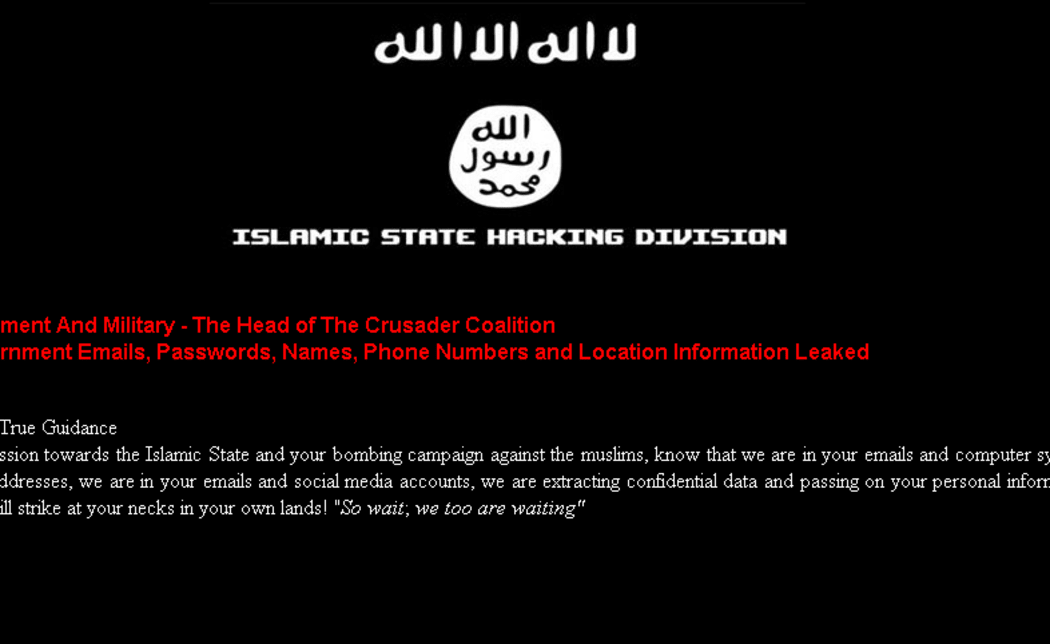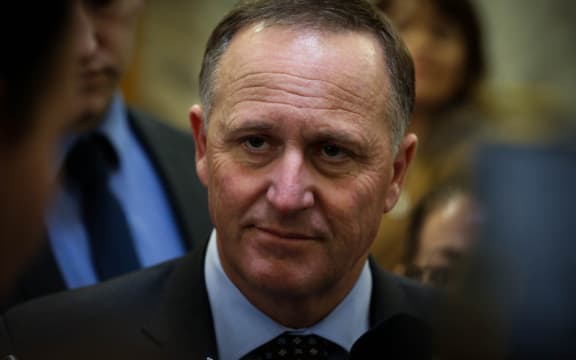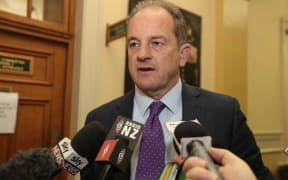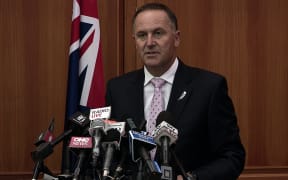The family of an Auckland man whose name is on a "hit list" apparently released by Islamic State is at a loss to understand why he appears, they say.

A screenshot from the list, published by the 'Islamic State Hacking Division' Photo: Supplied
Authored by the "Islamic State hacking division", the document claims the group has accessed United States military and government emails and goes on to publish passwords, names, phone numbers and locations.
There are nearly 40 pages of details, covering more than 1400 individuals, which have been shared on social media.
A message accompanying the list, which is in the form of a spreadsheet, warns its enemies: "Know that we are in your emails and computer systems, watching and recording your every move, we have your names and addresses, we are in your emails and social media accounts, we are extracting confidential data."
The division said it was passing the personal information onto the soldiers of the khilafah, who would strike with the permission of Allah.
Questions have been raised about the legitimacy of the data, with many of the passwords too weak for most military or government networks to accept.
The lengthy document includes the name, email address and other details of a man, whose city is stated as Auckland.
His family said he had no connection with the military or any security service.
"We are at a loss to understand why our son's name has appeared on this list," they said in a statement.
"We are very concerned about the information that has already appeared in the media and we strongly request that no information about our family is published."
The family was liaising with the police and asked for privacy.
A police spokesperson said they also could find no reason the man's name was on the list, and that the family was being given appropriate support and advice.

Prime Minister John Key Photo: RNZ / Alexander Robertson
Prime Minister John Key said the Government was not taking the threat lightly but he wanted more information before coming to any firm conclusions.
He said the Government had relatively scant details but he was confident he would get a full briefing from officials about the actual real risk, as opposed to the perceived risk.
"But this isn't the first time we've seen ISIS try to use intimidation tactics - in fact, it's quite consistent with what they do.
"All I can say is the police are obviously looking at the matter, and as and if required the appropriate support would be put around the person."
Mr Key said he did not know why the man's name had turned up on the list, and the Government wanted to determine how real the risks were.
"ISIL are sort of very well known for intimidation tactics and it's a sort of a standard procedure for these kind of people and the way that they want to be perceived," he said.
"But it's one thing to put out a list. It's another very different issue to actually carry that out.
"Now we don't take those threats lightly."
Mr Key said he did not think it had any security implications for the New Zealand troops currently stationed in Iraq.
"We have very appropriate force protection around our troops in a secure environment behind the wire.
"There are always risks operating in Iraq, people are aware of that, but the risks I don't think have changed as a result of the list that's been published."
He also did not believe the assumption could be made that New Zealanders were at greater risk because of New Zealand's involvement in Iraq.
"We've been there now for quite some time - from time to time they make threats about individuals or countries but I don't think it's quite as direct or sophisticated as this.
"I think clearly this is a list they've put together, and we'll have to understand it a little bit better and why this person's on this list, at this stage."
Australian Defence Force employees and a Victorian MP are among those who have reportedly had their personal information hacked, among eight Australians in total.
Australia's Justice Minister Michael Keenan said intelligence agencies were looking into the hacking.
"If there was any threat to any Australian's physical security then obviously we would take the appropriate action to make sure that people are safe - we are very good at doing that.
"If there's a threat to Australia we will stop it from occurring."
Mr Keenan said all Australians should take basic measures online to keep themselves safe.



